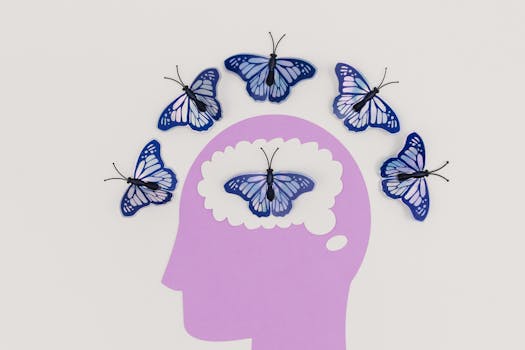What is cognitive distortions?

What is cognitive distortions?
Cognitive distortions are patterns of negative thinking that can significantly affect our emotions and behaviors. They often lead us to perceive situations in an exaggerated or irrational manner, which can result in heightened anxiety, depression, and overall dissatisfaction with life. Understanding cognitive distortions is essential for anyone interested in personal development, mental health, and effective strategies for improving daily life.
Understanding Cognitive Distortions
Cognitive distortions are systematic ways of thinking that can lead to misinterpretations of reality. They influence how we process information, perceive ourselves, and interact with the world around us. While it’s normal to have negative thoughts occasionally, cognitive distortions create a habitual pattern that can skew our perceptions and lead to emotional distress.
What are Cognitive Distortions?
Cognitive distortions are irrational beliefs or thought patterns that cause individuals to view reality inaccurately. For instance, if you fail a test, you might think, “I’m a complete failure,” rather than recognizing that many people struggle with exams. This type of thinking can create a cycle of negativity, reinforcing feelings of inadequacy and despair.
To illustrate, here’s a common example: Imagine you receive constructive criticism at work. Instead of viewing it as an opportunity for growth, you might think, “I can’t do anything right.” This distorted thought can affect your motivation and self-esteem, showcasing the power of cognitive distortions.
The Psychological Basis of Cognitive Distortions
Numerous psychological theories explain why cognitive distortions occur. One prevalent model is based on cognitive-behavioral therapy (CBT), which posits that negative thought patterns contribute to emotional suffering. Research has shown that these distortions are often rooted in past experiences, upbringing, and social environment. According to a study on cognitive distortions by Psych Central, these habitual thoughts can trap individuals in a cycle of negative feelings and behaviors.
Common Types of Cognitive Distortions
Recognizing the various types of cognitive distortions can empower you to challenge and change them. Here are some of the most prevalent distortions:
All-or-Nothing Thinking
This distortion involves viewing situations in black-and-white terms. If things aren’t perfect, they are perceived as failures. For instance, after a minor setback at work, you might think, “I’ll never succeed.” This rigid thinking can hinder your ability to see the bigger picture and appreciate small successes along the way.
Overgeneralization
Overgeneralization occurs when one incident leads to a sweeping conclusion. For example, if you experience a breakup, you might conclude, “I’ll never find love again.” This kind of thinking can lead to feelings of hopelessness and prevent you from pursuing new relationships.
Catastrophizing
Catastrophizing is when you predict the worst possible outcome in any situation. If you have a presentation coming up, you might think, “I’ll embarrass myself and everyone will think I’m incompetent.” This type of thinking can lead to increased anxiety and stress, making it challenging to perform well.
Mental Filtering
Mental filtering involves focusing exclusively on the negative aspects of a situation while ignoring the positive. For example, if you receive praise from colleagues but one piece of criticism, you might fixate on that criticism. This distortion can cloud your overall perception and lead to feelings of inadequacy.
Emotional Reasoning
In emotional reasoning, you assume that if you feel a certain way, it must be true. For instance, if you feel anxious about a social event, you might convince yourself that something bad will happen. This distortion can keep you from engaging in enjoyable experiences and lead to social withdrawal.
Identifying Cognitive Distortions in Yourself
Recognizing cognitive distortions in your thought patterns is the first step toward improvement. Here are some strategies to help identify these harmful thoughts:
Journaling Thoughts
Keeping a thought diary can be an effective method for tracking and analyzing negative thought patterns. Write down your thoughts, particularly when you feel upset or anxious. This practice can help you spot distortions and understand their triggers.
Mindfulness Techniques
Mindfulness encourages a non-judgmental awareness of your thoughts and feelings. By practicing mindfulness, you can create distance between yourself and negative thoughts, making it easier to recognize cognitive distortions as they arise.
Seeking Professional Help
If cognitive distortions deeply impact your life, consider seeking therapy or counseling. Professionals can provide personalized strategies to help you address and overcome these harmful thought patterns.
Overcoming Cognitive Distortions
Overcoming cognitive distortions requires effort and persistence. Here are some actionable tips to help you challenge and rectify these thought patterns:
Cognitive Behavioral Therapy Techniques
Cognitive Behavioral Therapy (CBT) is a powerful tool for addressing cognitive distortions. CBT encourages you to challenge negative thoughts and replace them with more realistic ones. By systematically questioning your thoughts, you can break the cycle of negativity and develop healthier thinking patterns.
Positive Affirmations
Reframing negative thoughts into positive affirmations can significantly improve your mindset. Instead of saying, “I can’t handle this,” try telling yourself, “I have the skills to manage this.” Regularly practicing positive affirmations can reinforce a more balanced perspective.
Developing a Balanced Perspective
Cultivating a balanced view is crucial for counteracting cognitive distortions. When faced with negative thoughts, take a step back and consider alternative explanations. Ask yourself, “What would I tell a friend in this situation?” This shift in perspective can help you see things more clearly.
Conclusion and Encouragement to Change
Cognitive distortions can have a profound impact on your mental health and overall well-being. By recognizing and addressing these thought patterns, you can foster personal development and improve your emotional resilience. Remember, change takes time, but with persistence and the right strategies, you can reshape your thinking and embrace a more positive outlook.
For further resources on cognitive distortions, I recommend checking out Therapist Aid and Harvard Health for practical worksheets and advice. Recognizing these distortions is the first step toward a healthier, more balanced life.